Faculty of Human Sciences
- Department of Education
- Department of Psychology
- Department of Sociology
- Department of Social Services
- Department of Nursing
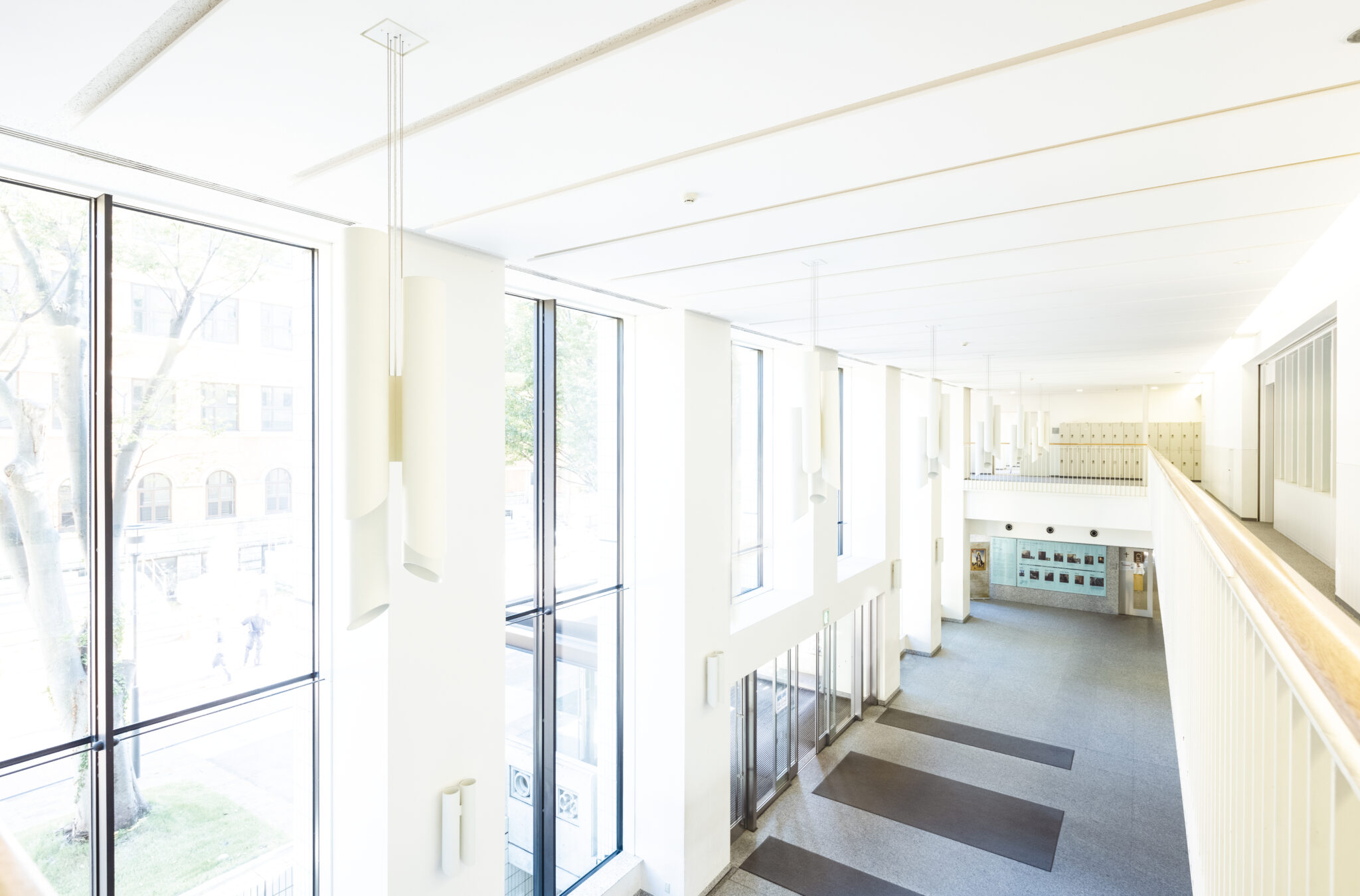

Learning at Sophia – Faculty of Human Sciences Edition | Learn and think about your own “Lifestyle” at Sophia
Cultivate knowledge about how to help people, professional education and qualities, and specialist skills
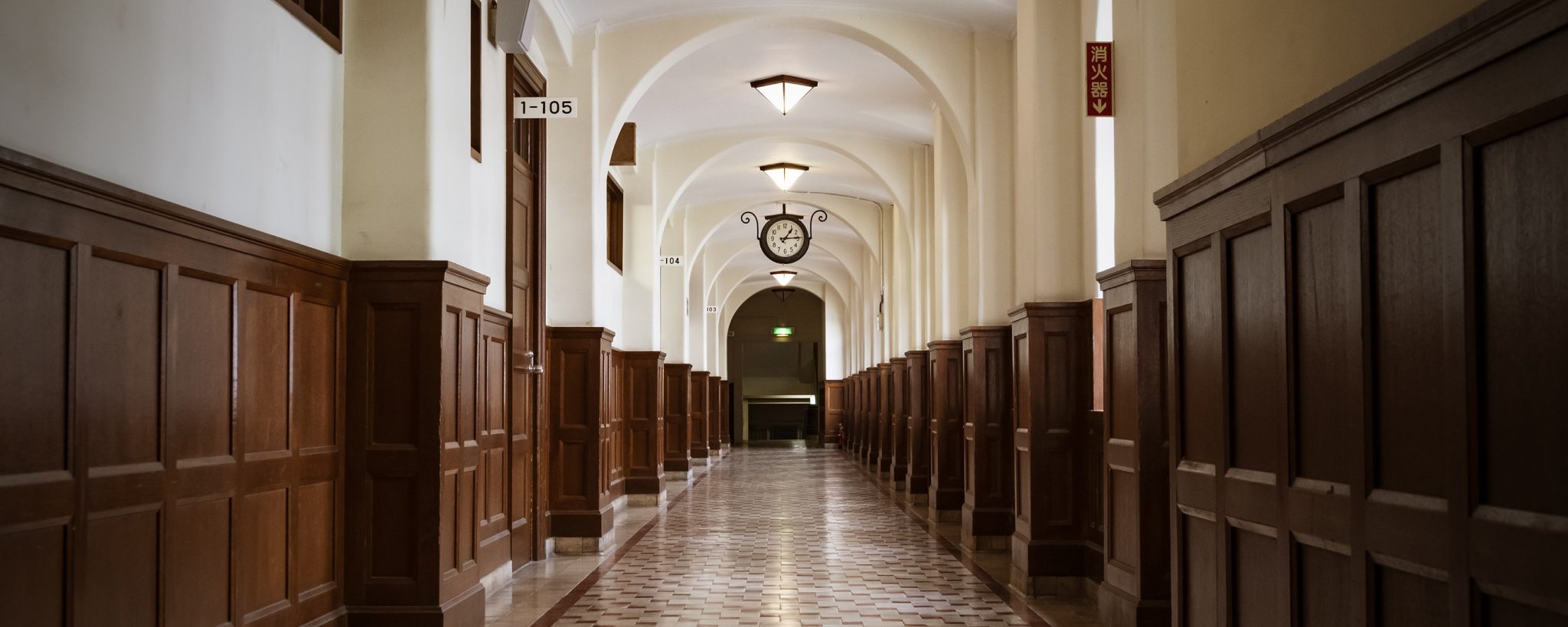
#Sophian
Sophian studying in the Faculty of Human Sciences
Students deepen their interest in social issues to attain a better society through learning about people living with difficulties and about the underlying realities of society. Even though the faculty encompasses various areas of academic study, including education, psychology, welfare, and medicine, all students share a strong desire to interact with a wide variety of people and help to solve problems.
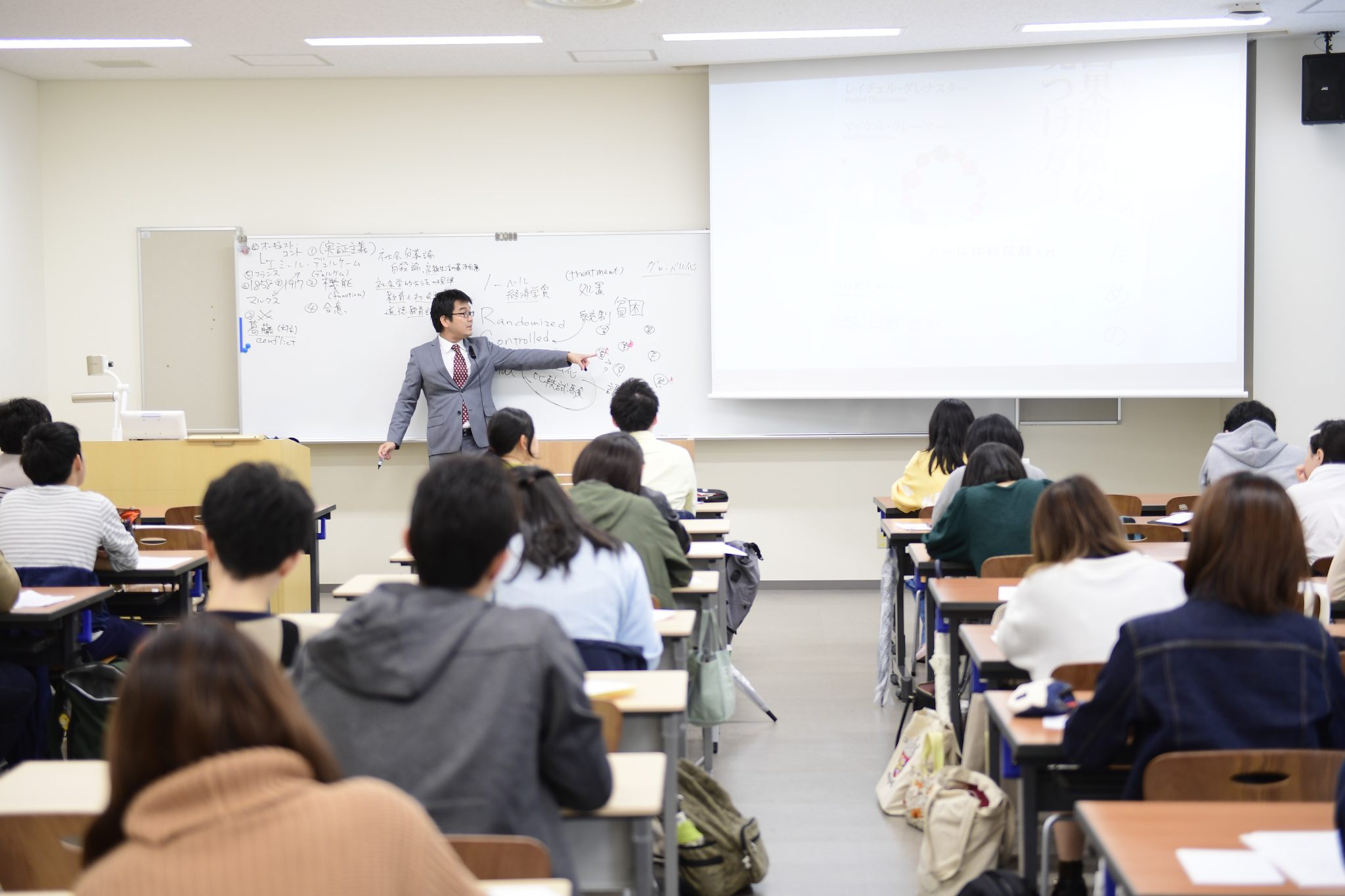
#Expertise
Brush up your specialty
The faculty is founded on taking a holistic view of humanity with a science-oriented perspective. With this in mind, students will strive to make direct approaches to those who are hurt or in need. They will also carefully examine policies for changing society. Human Sciences, Human Care, and Policy & Management are our three core areas of study.
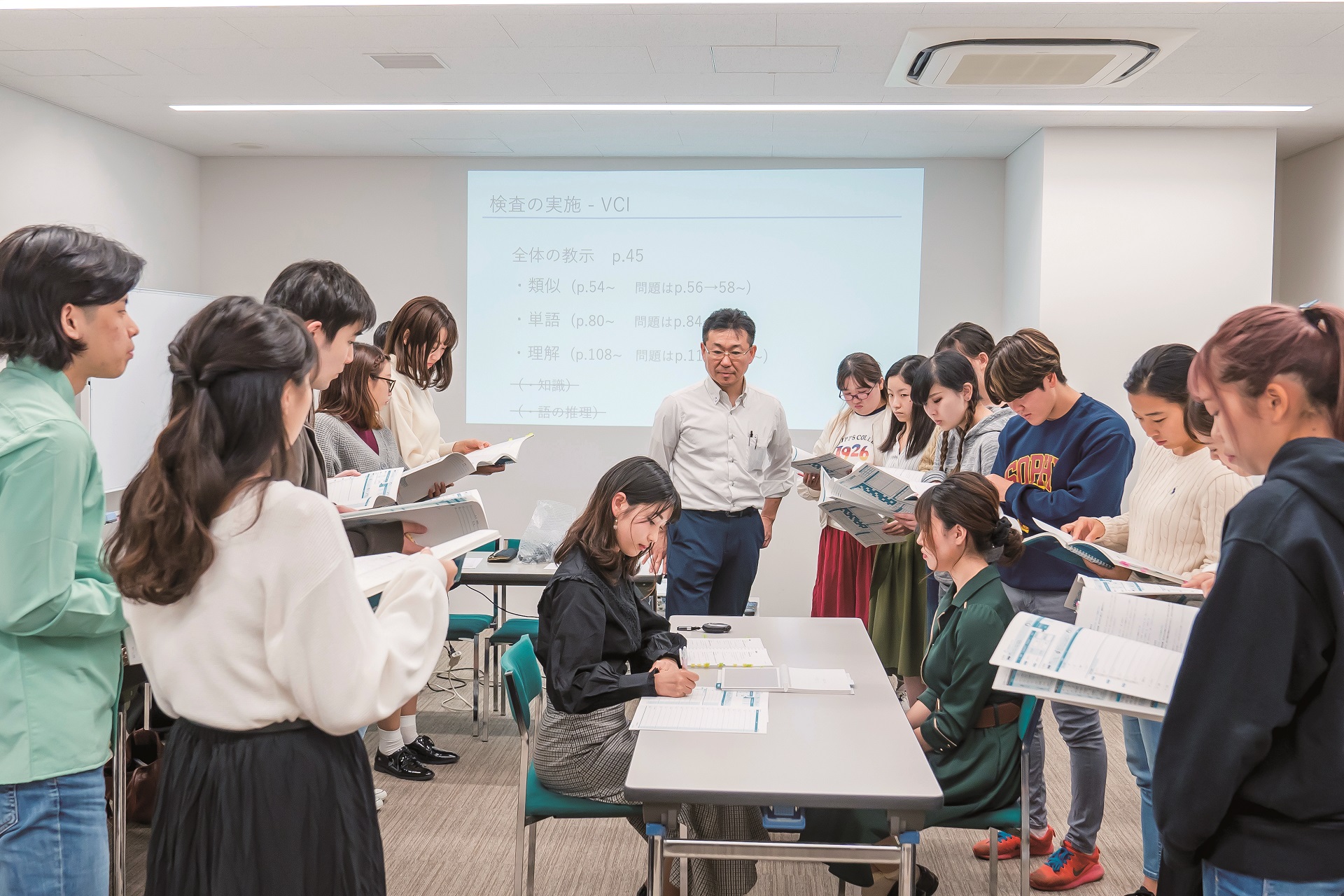
#Interaction
Inspire each other & open up the world
Nowadays, students not only need to develop expertise in their particular but also the ability to share opinions beyond their areas of study nowadays. At Sophia University, where all students gather on one campus, students can easily take classes among the faculties as well as from other faculties or departments. Thereby students are engaged in social contribution activities across different fields. Encounters among the students with different goals and ways of thinking will bring new insights.
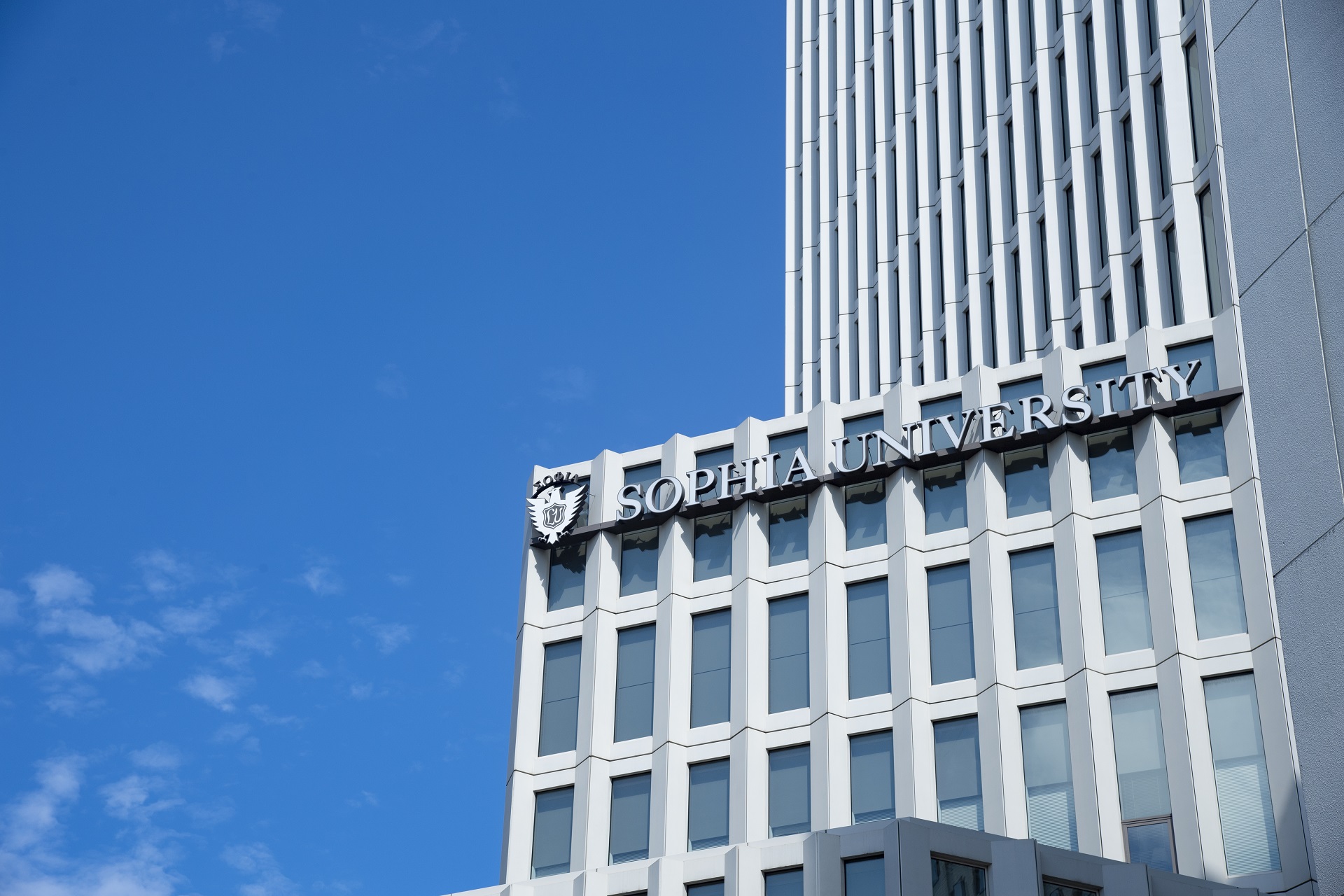
#Sophia Human Sciences
What it means to study at the Faculty of Human Sciences
To create a society that is better than what we have today, students will work on social innovations and improvements as they engage with people across a wide range of fields. The Faculty of Human Sciences aims to cultivate professional skills through studies that embody the philosophy of “For Others, With Others,” and to develop human resources to achieve social innovation for a brighter future.
About the Faculty of Human Sciences
Fostering professionals through education based on the Three Pillars of Knowledge
The Departments of Education, Psychology, Sociology, Social Services, and Nursing in the Faculty of Human Sciences all focus on the study of humankind and society, aiming to grasp the problems faced by people in around the world, and solutions for them.
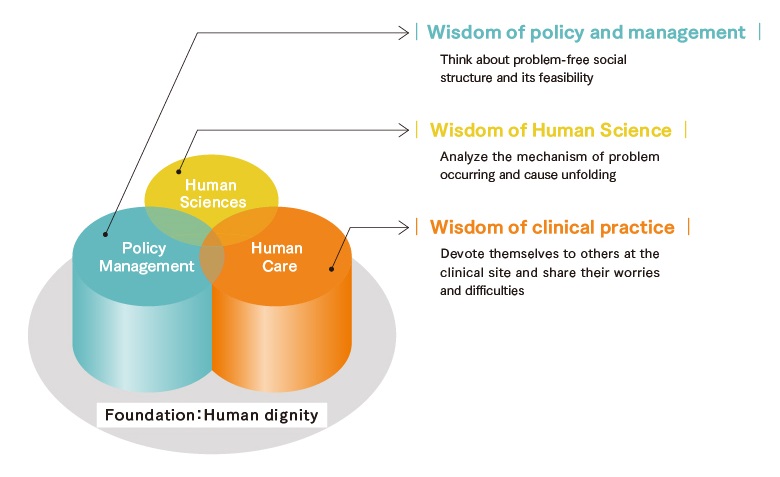
Based on the three pillars of knowledge, namely Human Sciences, Policy Management, and Human Care, our programs aim to cultivate graduates who can contribute to human dignity in schools, hospitals, businesses, or any place or society that students belong to, as well as graduates who can take responsibility for social innovation.
Educational Objectives and Policies
-
To cultivate scientific knowledge from the three pillars of Human Science, Policy Management, and Human Care, and to pursue interdisciplinary education and research on the theory, practice and clinical application thereof.
-
To foster a spirit of respect for the dignity of human and produce graduates capable of both contributing to assuring the dignity of individuals based on holistic education and participating in design and policy-making in the practical, clinical and managerial fields of human care.
-
The Faculty of Human Sciences sets standards for the skills and knowledge students should acquire before graduation as follows. Students who fulfill the graduation requirements shall be deemed to have acquired these qualities and will be awarded a diploma.
- The ability to comprehensively and multifacetedly understand the various issues human or society are facing from an international perspective, with respects of human dignity and broad cultural knowledge of human and society.
- The ability to analyze such issues using appropriate scientific methods and engage in efforts to solve them in active cooperation with people from other disciplines.
- The ability to constantly maintain an inquisitive mind, thrive in self-development and seek personal growth.
-
In accordance with Diploma Policy, the Faculty of Human Sciences constructs its curriculum with courses aligned to the following purposes with specific expertise:
- During the freshman and sophomore years, to have students broadly study what human dignity is and what knowledge and skills are necessary to achieve it by taking courses offered under the Basic Courses Category or Specialized Courses offered by a different Department.
- During the junior year, to have students acquire the foundations of thinking judgement, expressive skills, and communication skills as well as learn through practice the methodologies (theories and research methods) required for problem-solving through small-group education centered on seminars and fieldwork.
- During the senior year, to offer opportunities for students to independently identify research questions, collect the data required to solve them, perform analysis based on the data collected, and present their research outcomes.
-
The Faculty of Human Sciences seeks to foster human resources who are appreciative of human dignity and respect it in education, healthcare, welfare, and daily life so that it will be realized; and hence welcomes students with the following qualities:
- Students with a strong interest in human dignity-related phenomena occurring upon individuals as well as in society and other countries
- Students with the basic knowledge and skills required to analyze such phenomena logically and objectively
- Students who are capable of enhancing their communication skills and actively collaborating with those specializing in other disciplines
- Students who are strongly motivated to support individuals and local communities with challenging situation and contribute to the development of international society
Departments
Department of Education
Students will achieve the knowledge, perspectives, and methods to nurture and develop human and the ability to approach basic, practical and international issues on education surrounding us.
Department of Psychology
Through the scientific approach to the human “mind,” students will acquire comprehensive perspective necessary for a better life.
Department of Sociology
Students will develop critical interest in human society, acquire an outlook from a sociological perspective, and obtain the ability to propose solutions to international and humanitarian issues.
Department of Social Services
Students will acquire the ability to formulate new social welfare paradigm which individuals have better life and to put it into practice in concrete terms.
Department of Nursing
The program aims to cultivate nursing professionals through theories and practices to human caring and to develop leadership skills that enable them to react to social change autonomously and flexibly.
SPSF (Sophia Program for Sustainable Futures)
Departments within the Faculty of Human Sciences:
SPSF Department of Education
SPSF Department of Sociology